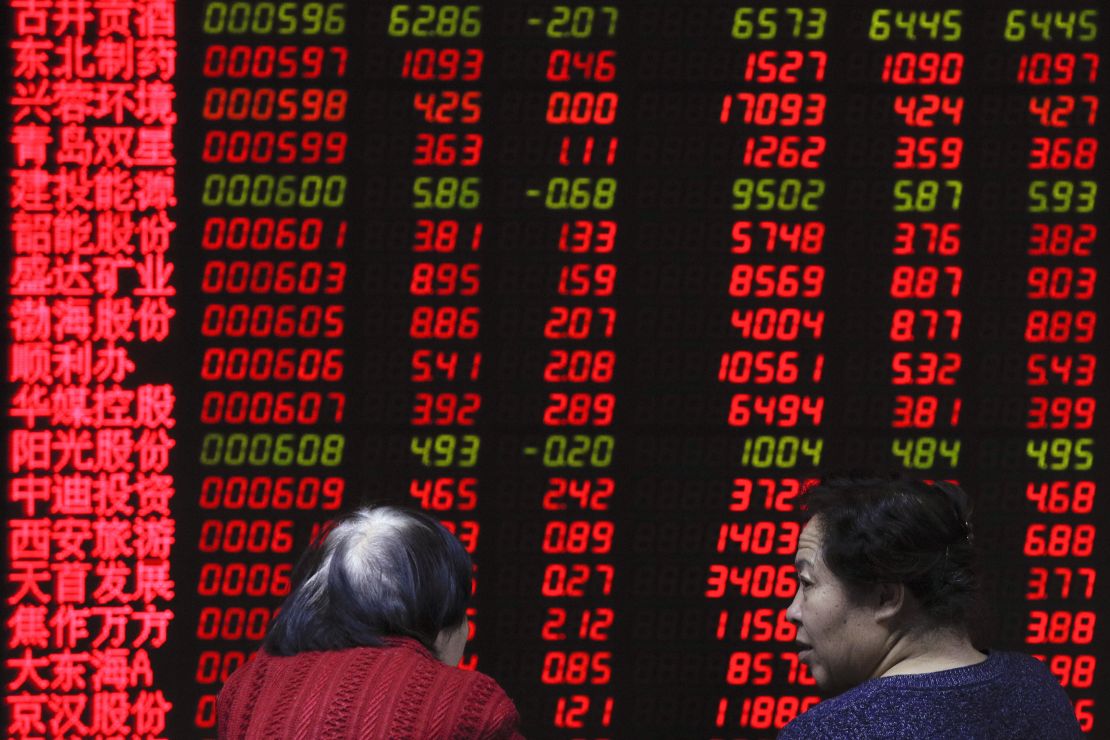Shanghai stocks just had their best day in more than three years after comments from the leaders of China and the United States brought investors piling back into the market.
The benchmark Shanghai Composite leaped 5.6% on Monday, its biggest daily percentage gain since July 2015, according to Reuters. That lifted it into a bull market, which is defined as a rise of at least 20% from a recent low.
Some of the encouragement came from US President Donald Trump, who announced that he’ll delay a major tariff hike on Chinese exports in order to give the two countries more time to reach a trade deal. Trump tweeted that trade negotiators had made “substantial progress” and that he will meet Chinese President Xi Jinping “to conclude an agreement” if the talks continue to advance.
Xi also contributed to the sharp rise with comments over the weekend calling for the development of China’s financial industry, which investors interpreted as encouragement to move money into the sector.
Chinese shares took a beating last year from fears about the country’s economic slowdown and its trade war with the United States. They have rallied since the start of 2019, in part because of rising hopes of an end to the damaging hostilities between the world’s top two economies.
“I can almost hear the collective sigh of relief in the region this morning,” Jeffrey Halley, an analyst at online broker Oanda in Singapore, said in a market commentary Monday, referencing the postponement of the US tariff increase. He noted that other Asian economies are “so closely tied to the fortunes of China now that ripples are felt far and wide.”
Stock indexes in Tokyo and Hong Kong posted modest gains of less than 1%. But they were dwarfed by the jump in mainland China. The closely watched CSI 300, which tracks stocks in Shanghai and Shenzhen, soared 6%. That lifted it into a bull market territory, as well. China’s main indexes had plunged into a bear market last year, a drop of at least 20% from a recent high.
Hao Hong, head of strategy at brokerage BOCOM International, said Monday’s big gains were helped by Xi’s comments about the Chinese financial industry.
In remarks at a top leadership meeting, which were reported by state media over the weekend, Xi said China should strengthen the financial sector’s ability to serve the real economy. That includes “the need to establish a standard, transparent, open, dynamic and resilient capital market,” according to a report by the official news agency, Xinhua.
Despite the broad nature of Xi’s comments, Chinese investors took them as a cue to pour money into the country’s stock markets, according to Hong.
Financial stocks led the gains in Shanghai on Monday. Shares in several major brokerages, including Citic Securities and China Galaxy Securities, spiked 10%.

Trade tensions persist
Analysts warned that despite the encouraging signs from the trade talks between China and the United States, plenty of risks remain.
The two countries started imposing heavy new tariffs on huge swathes of each other’s exports in July, alarming investors and disrupting companies’ operations around the world.
The US government was due to hike tariffs on $200 billion of Chinese goods from 10% to 25% on March 2 if the two sides were unable to reach a deal before then.
“The tariff suspension and increased likelihood of a more lasting agreement should be a positive for international trade and business in both countries, as well as the global economy more generally,” Louis Kuijs, head of Asia economics at research firm Oxford Economics, said in a note to clients on Monday.
Trump didn’t specify what the new deadline for raising tariffs would be or when he is likely to meet Xi. He said the meeting would take place at his Mar-a-Lago resort in Florida.
Kuijs and other analysts cautioned that investors shouldn’t get carried away, pointing to the challenges Beijing and Washington face in reaching agreement on complex issues including China’s industrial policy, intellectual property protection and the transfer of technology.
“This is clearly not the end of the negotiations, let alone the underlying tension between the two countries,” Kuijs said.
“We don’t expect the existing tariffs to be reduced any time soon,” he added. “It is also not clear whether there will be any significant reduction in other US restrictions in the area of technology or a change in its stance on Huawei.”
The US government is trying to persuade allies to shut Chinese tech company Huawei out of super-fast 5G wireless networks, citing security concerns. US prosecutors have also indicted Huawei on criminal charges, including theft of trade secrets and sanctions evasion. The company denies all the allegations against it.

























